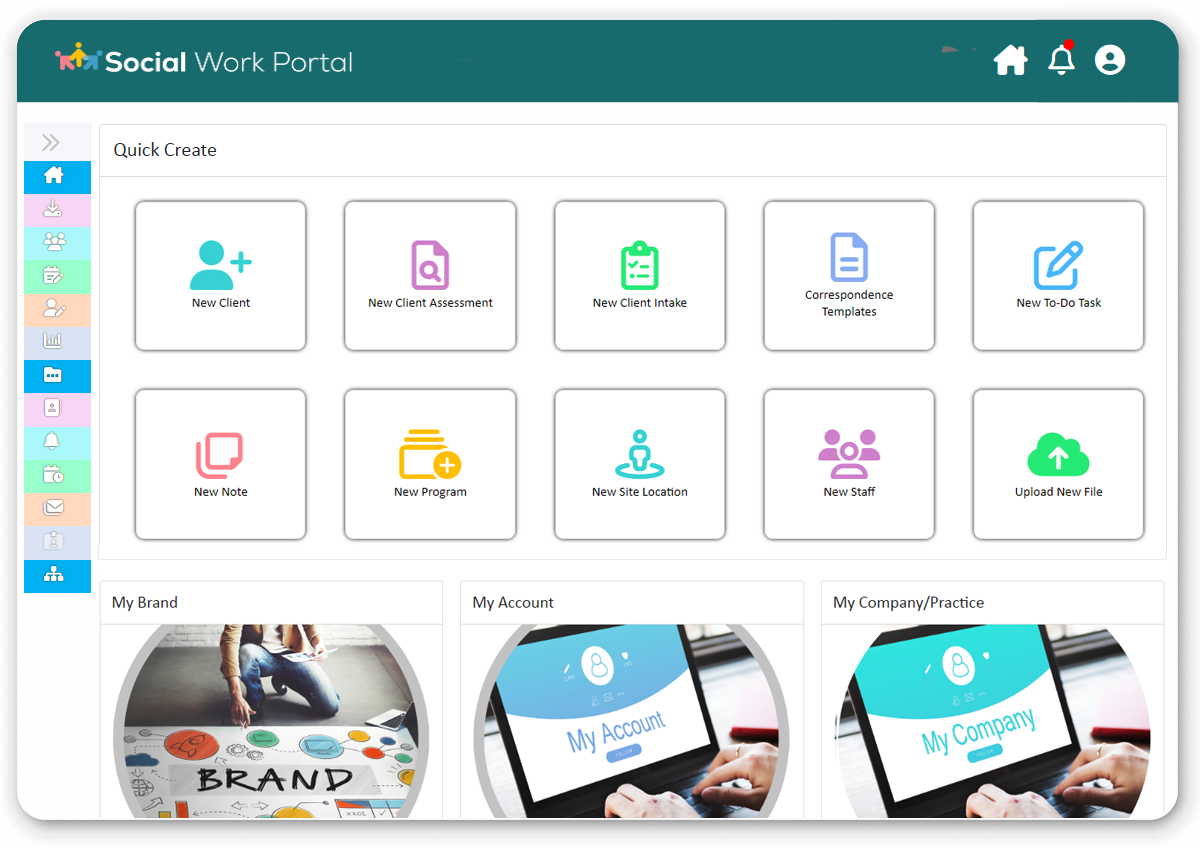Mission-Driven Excellence: Best Practices for Nonprofit Program Management
The heart of any non-profit organization or non-governmental organization (NGO) lies in its programs. These initiatives are the driving force behind positive change, addressing critical needs and creating lasting impact in communities around the world.
But running effective nonprofit and NGO programs requires more than just passion and good intentions. Nonprofit program management plays a crucial role in ensuring the success, efficiency, and sustainability of your organization’s work.

Whether you’re new to a program NGO position or are an experienced nonprofit program manager looking to optimize, you can leverage our five powerful tips below to empower your NGO programs and nonprofit programs to achieve their full potential.
Watch a summary below:
Story Highlights
|
5 Effective Strategies to Enhance NGO & Nonprofit Program Management
Those in nonprofit and NGO program management are well aware of all the moving parts needed to keep programs running smoothly. You need a smooth intake process, accurate data collection, consistent delivery of services, and a way to report on activities so you know that you’re making the desired impact.
These five strategies for managing nonprofit and NGO programs are designed to streamline processes and keep your programs running smoothly.
1. Define Clear Goals and Impact Objectives
The foundation of any successful nonprofit program is a set of clear, measurable goals. Here’s how to establish a roadmap for success:
- Start with Your Mission: Align the goals for your nonprofit programs with your organization’s overall mission and vision. How does each program contribute to your broader objectives?
- Identify SMART Goals: Set Specific, Measurable, Achievable, Relevant, and Time-Bound (SMART) goals for your NGO programs. This ensures clarity, and focus, and allows you to track progress effectively.
- Define Impact Objectives: Outline the specific impact you aim to achieve through your programs. How will a program measure success? Will you measure increased access to resources, improved client outcomes, or positive changes in policy or social norms?
Pro Tip: Involve stakeholders in the goal-setting process. This could include staff, beneficiaries, and potential funders.
Do you have any questions about effective strategies for managing NGO programs or nonprofit programs? Please reach out and let us know!
2. Develop a Comprehensive Program Plan
With clear goals in mind, it’s time to create a roadmap for achieving them. Here’s how to develop a comprehensive program NGO or nonprofit plan:
- Outline Key Activities: Identify the specific activities required to achieve your program goals. These could include workshops, training sessions, advocacy campaigns, or direct service provision.
- Develop a Timeline: Establish a realistic timeline for each activity, factoring in dependencies and potential roadblocks.
- Assign Roles and Responsibilities: Clearly define roles and responsibilities for program NGO staff, volunteers, and any external partners involved.
- Budgeting & Resource Allocation: Create a detailed budget outlining nonprofit program expenses and resource allocation. This allows for financial oversight and ensures efficient resource utilization.
Pro Tip: Utilize project management tools like Gantt charts or Kanban boards to visualize your program plan and track progress visually.
3. Prioritize Monitoring & Evaluation
Effective nonprofit program management is an ongoing process, requiring continuous monitoring and evaluation to ensure your program is on track and achieving its intended outcomes. Here’s how to integrate this crucial aspect:
- Establish Monitoring Metrics: Define measurable indicators for each program activity and goal (include any grant requirements). This might involve collecting data on participant numbers, service utilization rates, or changes in key metrics like income levels or educational attainment for beneficiaries.
- Regular Data Collection: Develop a system for collecting data at regular intervals throughout the program cycle. Utilize surveys, interviews, focus groups, or case management tools to gather feedback.
- Performance Analysis: Analyze the collected data to assess progress towards your goals. Identify areas of success and areas that may require adjustments.
- Embrace Continuous Improvement: Use the insights from your evaluation to refine your NGO programs and adapt your strategies as needed. This demonstrates a commitment to learning and continuous improvement to funders and stakeholders.
Pro Tip: Use a nonprofit case management software, like Case Management Hub, that allows you to add custom reporting metrics and automates your analytics.
4. Communication & Collaboration are Key
Effective communication and collaboration are essential for NGO program management and nonprofit program management. Here’s how to foster a strong communication culture:
- Internal Communication: Establish clear communication channels within your NGO programs teams. Regular team meetings, progress updates, and open communication channels ensure everyone is on the same page.
- External Communication: Maintain open communication with program beneficiaries, funders, and other stakeholders. Share program NGO updates, success stories, and challenges faced transparently.
- Collaboration is Key: Foster collaboration between your program teams, volunteers, and any external partners involved. Effective collaboration leverages diverse skillsets and perspectives, leading to better nonprofit program outcomes.
Pro Tip: Utilize secure cloud technology to streamline communication. Online collaboration tools for program and case management can facilitate communication and information sharing across large teams.
5. Embrace Innovation & Continuous Learning
The world around us is constantly evolving, so should your NGO and nonprofit programs. Here’s how to stay ahead of the curve:
- Stay Informed: Keep abreast of new research, emerging trends, and best practices within your field. Attend conferences, workshops, and webinars to stay updated on the latest developments.
- Explore technology: Utilize data collection tools, online learning platforms, or social media to reach a wider audience and deliver services for your nonprofit programs more efficiently.
- Pilot Projects: Implement pilot projects to test new approaches and innovative solutions within your NGO program management. This allows for experimentation and learning before scaling up successful interventions.
- Learn from Others: Connect with other NGOs and nonprofits working in your field. Share best practices, learn from each other’s successes and challenges, and explore potential collaboration opportunities.
Pro Tip: Encourage a culture of innovation and continuous learning within your organization. Empower staff to suggest new ideas, experiment with different approaches, and share their knowledge with colleagues.
Please let us know if you have any feedback to share about your experience with nonprofit programs or NGO program management. We’d love to hear from you!
Conclusion: Strategies for Strong NGO & Nonprofit Program Management
Powerful program management strategies are the cornerstone of successful nonprofits and NGOs. By following these five strategies, you can ensure your NGO programs are well-defined, effectively implemented, and deliver lasting impact.
Remember, nonprofit program management is an ongoing journey. By embracing continuous improvement, fostering a culture of learning, and adapting to changing needs, your organization can make a significant and sustainable difference in the world.
Need Good Case Management Software for NGO Program Management?
Is your nonprofit organization still wrangling spreadsheets for program management? It’s time to level up! Meet Case Management Hub, cloud collaboration tailor-made for NGOs and larger nonprofit teams.
Why Choose Us?
- Comprehensive: Track clients, schedule appointments, and create assessments—all in one user-friendly platform.
- Cloud-Based: Access data securely from anywhere.
- Effortless Collaboration: Share information, assign tasks, and monitor progress seamlessly.
- Group Discount: Enjoy both a nonprofit and group discount for teams of 6 or more.
Ready to transform your workflow?
Learn more & get your free trial.
FAQ: Management Tips for NGO & Nonprofit Programs
Why are SMART Goals recommended for effective nonprofit program management?
SMART Goals mean to set Specific, Measurable, Achievable, Relevant, and Time-Bound (SMART) goals for your NGO programs. This ensures clarity, and focus, and allows you to track progress effectively.
Are there tools that can make program NGO reporting more time-efficient?
Yes. Case management tools like Case Management Hub enable you to add as many programs and clients as you like, offer customizable reporting, and help automate the reporting process to save you considerable time. Learn more at www.socialworkportal.com/nonprofit-software.
What are some ways we can encourage a culture of innovation within our NGO?
Some ways to keep your nonprofit program managers innovating is to empower staff to suggest new ideas, experiment with different approaches, and share their knowledge with colleagues..
Note: Content on this website (socialworkportal.com) is copyrighted and protected under applicable copyright laws. Unauthorized reproduction, distribution, or use of any content from the website, without explicit written permission, is strictly prohibited. Read: Terms of Use.
Social Work Portal Disclaimer: Social Work Portal is not a social work agency and we do not refer social workers. This web site is provided for educational and informational purposes only and does not constitute providing medical advice or professional social and healthcare services. The information provided should not be used for diagnosing or treating a health problem or disease, and those seeking personal medical advice should consult with ... Read our full disclaimer here: Social Work Portal Disclaimer.

Image sources: Stock.adobe.com





